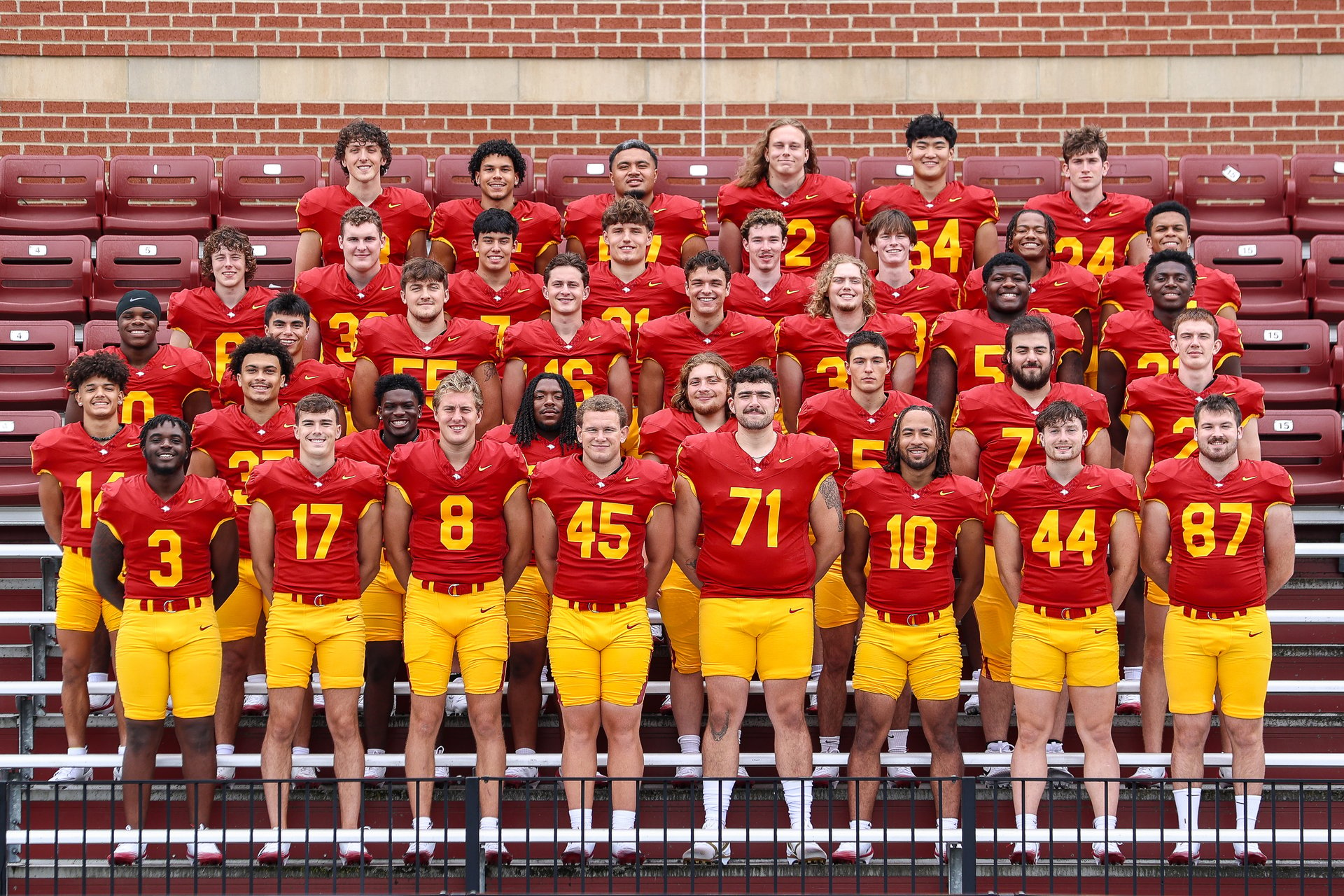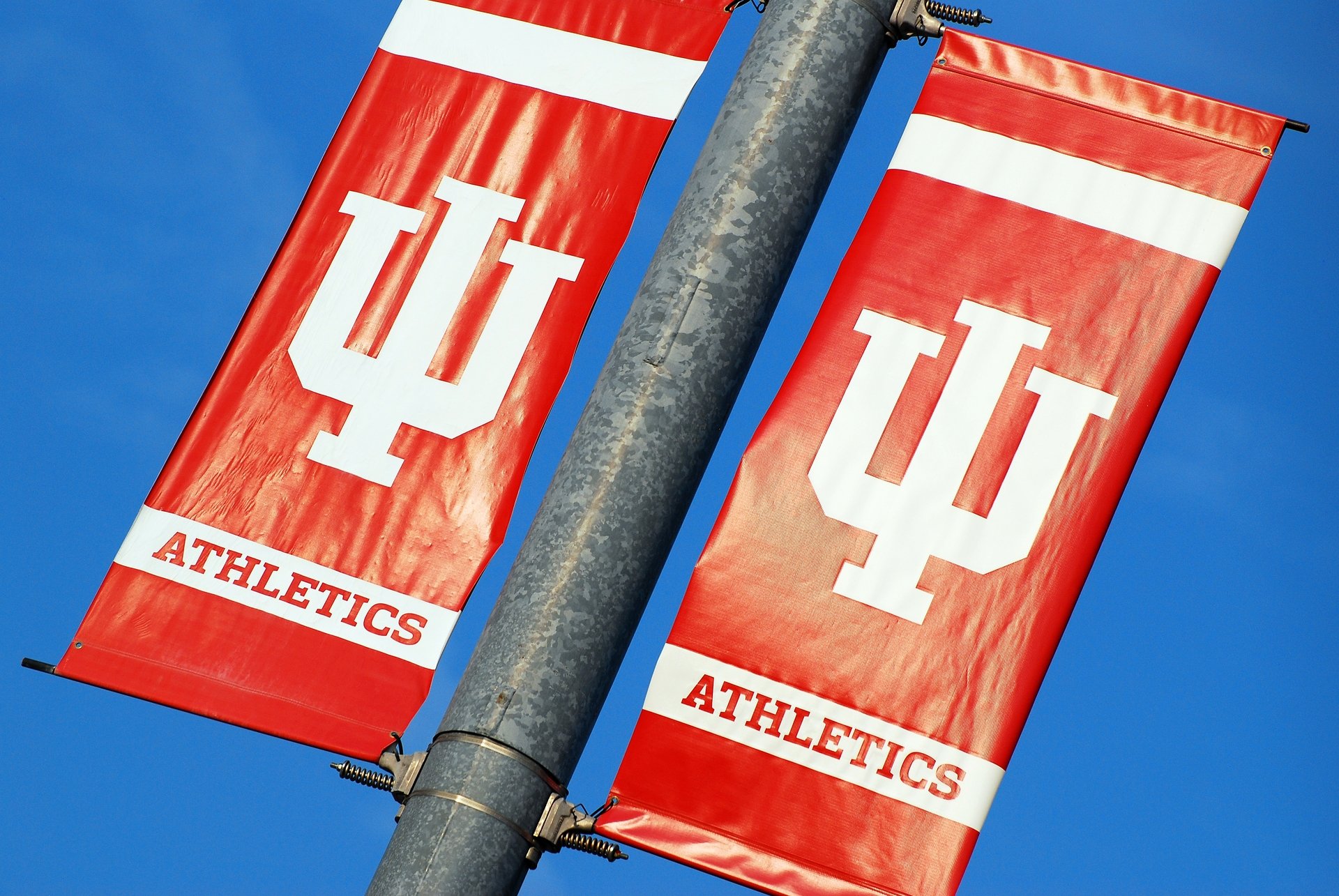Good morning, and thanks for spending part of your day with Extra Points.
Extra Points is a reader-supported publication. If you enjoy these newsletters or want to support independent writing on college athletics, please consider subscribing!
With a paid subscription, you get four Extra Points newsletters a week, plus access to our Extra Points Discord channel, sponsored by our friends with the Moon Crew. I’ll even throw in an Extra Points sticker, absolutely free.
It’s just $7/mo, or $70/year.
My big goal is to get to 600 paid subscribers by the end of 2020. That benchmark will give Extra Points much more financial flexibility heading into 2021, one that will make securing partnerships, paying for help, and adding new features much easier. We’re not far off that goal. Your subscription will help us get there.
You can also support us by buying one of these snazzy shirts from our pals at Homefield.
I want to try something a little different today and go back to the original roots of this newsletter. I want to hit a few different stories, rather than just one giant story.
UMass AD Ryan Bamford responds to my FOIA requests
Earlier in September, I criticized UMass for forging ahead with a fall football season. Given their inability to sell tickets or secure significant guarantee games, I argued spending money to play a few games against Conference USA or Sun Belt opponents was not the best use of department resources. Others clearly disagree, and that’s fine.
I’ve filed open records requests for every announced UMass football game so far, as I have with other football games announced in the middle of the season, in part to better understand what sort of guarantees UMass might get, and how contracts in the middle of COVID might differ.
For their game against Georgia Southern, UMass was paid $60,000. For a future game against Marshall, according to the contract Marshall sent me, UMass will get $100,000. So I tweeted that. I also noted that Marshall will not pay the travel expenses for UMass, something I only mentioned because a clause in this contract specifically notes that. Typically, this is assumed. The contract states:
6. Unless mutually agreed to the contrary in the “Special Arrangements” section below, the visiting team shall make all of its own travel arrangements and pay all associated expenses.
UMass AD Ryan Bamford responded:
And re: a future UMass/Liberty football game this season:
I appreciate the gesture! But I already filed the request. If any other athletic director would love to save me the trouble and just CC me when you sign a contract for a football game, my email is [email protected].
To Ryan’s credit, he’s right that the Marshall contract looks pretty standard, and I honestly wasn’t tweeting that out as a gotcha. I don’t think $100,000 for a G5 bringing in another G5 or Independent is out of line with the market right now. And yes, if UMass only ends up playing road games, they’ll absolutely save money on event staff, security, gameday operations, etc.
When the dust settles, could I be wrong about my UMass football takes? Sure! I’m not an all-knowing seer. If I was, this newsletter would be a lot more expensive. But part of knowing for sure is asking for the receipts. So that's what I’ll continue to do.
But yeah, I don’t think there’s anything in the UMass/Marshall agreement to specifically tweak UMass over.
What’s the latest with the WAC?
A few weeks ago, I reported that Southern Utah is expected to leave the Big Sky for the WAC. While the school has not officially announced the move (earlier this month, they stated that “SUU has not received an official offer to join any other conference”), I can tell you this is still expected to happen. Additionally, multiple industry sources have told me that the WAC is targeting multiple football-playing schools in Texas from the Southland Conference as potential additional members.
Last week, I reached out to WAC Commissioner Jeff Hurd over email for some clarification about where the league is going. When I asked him if he envisioned the WAC sponsoring FCS football by 2025, he told me:
One of the responsibilities of any commissioner is to continually look at methods to build a better model. There are various ways to do so, there is no one size that fits all and a time frame is dependent upon the specific involved initiative. Frankly, however, I am not concerned with 2025. I am concerned with today’s environment and navigating the conference through the significant challenges its members face primarily as a result of the COVID-19 crisis.
I also asked him how he’d define the identity of the WAC, as the conference sprawls over multiple time zones and has very different types of institutions as members.
“The WAC is a resilient, diverse and continually evolving Division I conference that since its inception in 1962 has successfully adjusted to various market-place circumstances.Whether public or private, a WAC institution is committed to providing outstanding educational and athletics opportunities as well as an overall exemplary university experience…. I will say the most recent additions were guided in part by opportunity and fit.One of the obvious facts about the WAC is that it is diverse. Included is the fact that it has one FBS member, two FCS reclassifying members and six non-football playing members. It also is a combination of public and private institutions. In my eight years as the commissioner, I always have looked and will continue to look to improve the conference’s profile and long-term stability. There is not a singular approach to doing so. “
You could say a lot of things about the WAC, but it’s unquestionably a resilient league, one that hasn’t been afraid of reinventing itself. I also think it’s fair to point out that reinvention or transformational change doesn’t necessarily have to come from membership changes.
For my money, I really do think this is a league to watch over the next year or so… I suspect many of the potentially large changes coming to college athletics and American higher education, both positive and negative ones, could prove to be particularly visible at WAC institutions. Ohio State, in many ways, simply does not face the same pressures to adapt as a Seattle, or a Grand Canyon.
Could A D-1 school get out of athletics entirely? It looks possible at UC Riverside.
Despite the difficult financial headwinds facing college athletics, I don’t think it’s likely that many schools will decide to either drop athletics, or reclassify, either from FBS to FCS, or from D-1 to a different level. The political pressures are too great, and the immediate rewards, too few.
But it looks like one school may follow that path. UC Riverside appears to view dropping college athletics entirely as a legitimate option. Via ESPN:
In August, officials at UC Riverside listed the move as one option to address its financial challenges in this unprecedented chapter for college sports. Jones and her peers within the department, however, hope to convince UC Riverside's power brokers to consider an alternative that would involve a combination of increased student fees and expanding the department to encompass the school's recreational programs.
If this decision is to be made purely on athletic or financial grounds, I think the decision is pretty easy. UC Riverside should get out of the D-1 sports business. According to their 2018 financial filings, UC Riverside athletics generates almost no revenue, with the vast bulk of the budget coming from direct institutional support and student fees. According to the Knight Commission’s data, the school made less than $200,000, total, in ticket sales across the department. The fan interest is just not there. Plus, the men’s basketball team has yet to win 20 games in a season or crack .500 in Big West play.
In a heavily crowded metro LA sports marketplace, without significant reinvestment, it’s hard to imagine any flagship athletic program at this school becoming very competitive.
But perhaps there’s also an argument to be made that the athletic program has benefits that cannot be captured on a Knight Commission database or in the Director’s Cup standings. Dropping sports, after all, could potentially mean 300 students leave the school. Also, via ESPN:
While UC Riverside's fight centers on financial numbers and budget concerns, the athletic department's leaders have focused on the broader impact of athletics on campus and the young women and men who would lose critical opportunities without sports. Almost 90% of UC Riverside's students are minorities and more than half are first-generation students. The makeup of its athletic teams mirror the same demographics.
In my opinion, perhaps the worst option would be to let the department dangle in uncertainty. If the school feels it does not have the resources to run a D-1 caliber athletic department, and it certainly has not been shy in letting the world know they’re considering that idea, then it should get out of the D-1 business with haste, to give students and staff as much time to make other arrangements. If it wants to continue sponsoring an intercollegiate athletics program, like every other school in the UC system, it should make that clear ASAP, and set clear fundraising metrics required to make that happen. Without a clear direction, coaches can’t recruit, athletes can’t focus, and the department can’t meaningfully plan and grow.
Based on what I see, I think arguments for both actions can be defensible. For the sake of folks who love UC Riverside, I hope they commit to a plan soon.
Thanks for supporting Extra Points. Questions, comments, concerns, and more can be sent to [email protected], or to @MattBrownEP on Twitter.
If you enjoy these newsletters, please consider a paid subscription to help keep Extra Points going. Failing that, sharing Extra Points with your friends, colleagues, message board communities, and more goes a LONG way. Word of mouth is the top way this audience has grown.

The Intercollegiate and Extra Points are proud to partner with the College Sport Research Institute, an academic center housed within the Department of Sport and Entertainment Management at the University of South Carolina. CSRI’s mission is to encourage and support interdisciplinary and inter-university collaborative college-sport research, serve as a research consortium for college-sport researchers from across the United States, and disseminate college-sport research results to academics, college-sport practitioners and the general public. You can learn more by visiting CSRI’s website


















